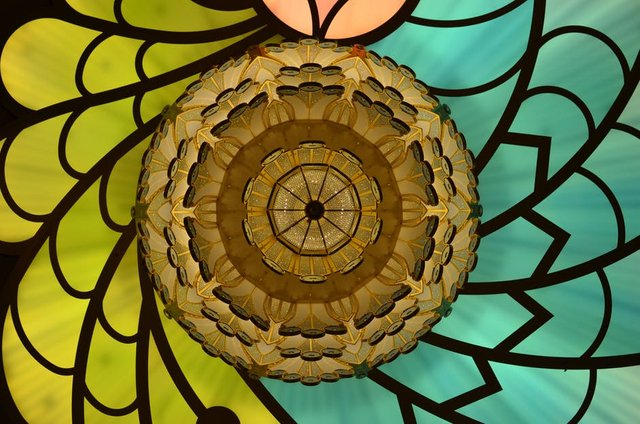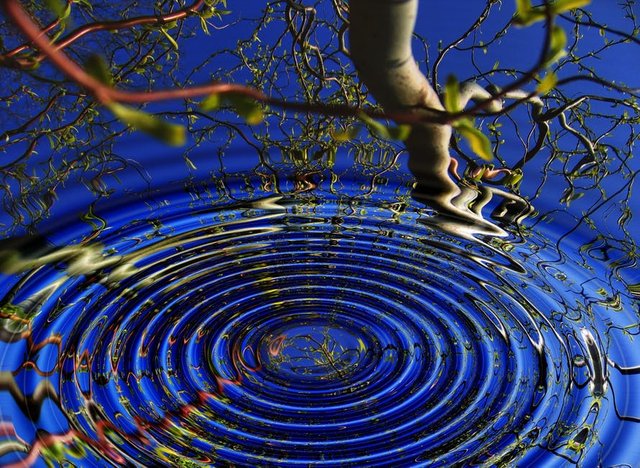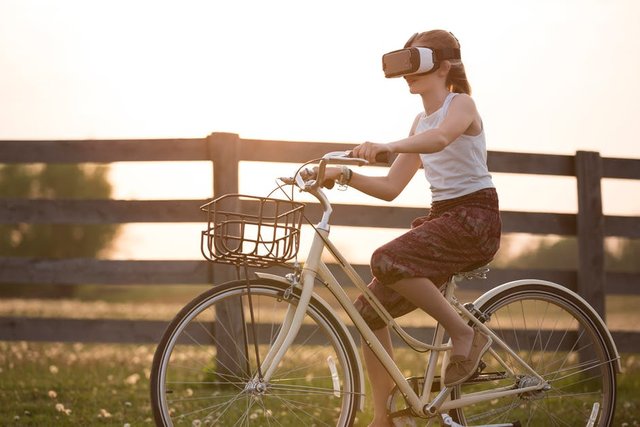Is "now" just an illusion?
You are reading these words right now (try to follow my idea). I can say that, although I don't know when you will read this.
I can't say that you read them yesterday or tomorrow, but I can say that right now, you are reading the word "now." This is how special it is the word "now".
And yet, despite all the thought dedicated to time, science does not consider "now" as different from the future or the past. So do not think it's a simple or superficial problem.

In 1963, the philosopher Rudolf Carnap recalled a conversation he had with Einstein about what Einstein called 'the now'
"Once, Einstein said that the problem of 'now' seriously concerned him ... He explained that the 'now' experience means something special for man, something essentially different from the past and the future, but that this important difference does not occur nor can it occur within physics.The fact that this experience can not be understood by science seems to him a matter of painful but inevitable resignation "
Especially I was struck by what Carnap said:
"That there is something essential about the Now that is outside the scope of science".
Scientists barely touched the concept of time until Einstein arrived. Although he could not explain time itself, he did show some peculiar things about it:
That, for a stationary observer, time flows more slowly towards an object in motion, and that the greater the force of gravity, the slower the time flows. But he, and no one else, since then, could explain what made the present moment objectively different from the past or the future.

What's wrong with the "now"?
Much of this riddle is due to the fact that science focuses on objective reality, and the present moment is defined by its experience in it. Because of that, some scientists say that the present moment does not really exist at all ...
The Physicist, N. David Mermin, replied in an article that the present moment is not an illusion, but evidence that we need to include personal experience in the physical description of the world of science.
After all, we have no other choice: every scientific observation is filtered through our human experience in some way, be it the way our eyes work or the peculiarities of our brain.

Is our conscience the illusion?
Cogito ergo sum means, "I believe, therefore, I am" (thanks Google).
That quote, coined by the French philosopher René Descartes, is the cornerstone of modern philosophy. What it means is that although you may be wrong about almost everything from the answers to simple math problems to the belief that you are awake and not asleep, the only thing you can be sure of is that you are experiencing the things that you are experimenting. But, according to the philosopher Daniel Dennett, even that's odd.
There is a quote from religion professor Lee Siegel that Dennett uses to illustrate his point:
"Real magic is magic that is not real. While the magic that is real, that can really be done, it's not real magic. "
There is no one out there that cuts people and puts them back together (I hope), only illusionists who use various tricks to make it look like that is the case. The same is true for consciousness. The only difference is that our brains are the mage with the saw, the hot assistant caught in the box and the baffled audience. All at the same time.
What we consider our conscience is that our brains perform a series of tricks to conjure the world as we experience it. But in reality, everything is smoke, mirrors and neurons that fire quickly. According to Dennet.
"If our brain is a smart phone, then consciousness is the screen."
In other words, consciousness is not how our brain works, it's just how we relate to it. A screen really does not have much to do with how the phone works, and in fact, the phone could do almost everything it does without it. It simply would not be usable by humans.
Our brains are like smartphones in another way: they are basically robots, or thinking machines, and like any robot, they need a means through which to communicate with their users.
But it can go even further: if our brains are robots, then our neurons are smaller robots, which in turn are made up of even smaller robots. Then, even if we lose the concept of consciousness along the way, we are still "machines."

Is everything in the head of the philosophers?
It would not be a philosophy if there were not someone in disagreement. Meet Thomas Nagel, a philosopher who has some key disagreements with Dennett's ideas. For Nagel, consciousness is something that is outside the material world, and what is more, he affirms that Dennett also believes it. After all, even if consciousness is an illusion, it is a "real" illusion just as the saw trick is "real" magic.
"It may be asked how consciousness can be an illusion, since each illusion is in itself a conscious experience, an appearance that does not correspond to reality. Therefore, it can not appear that I am conscious even if it is not "
If this is starting to sound like you're circling back to *** cogito ergo sum ***, you're not wrong. It simply serves to show how philosophy functions as a wheel of ideas and counterintensions. At the end of the day, it would be better to trust Dennett's vision when it comes to understanding the brain and how consciousness works, and Nagel's when you try to wrap your mind in the way you really experience the world. Either way, do not take this too close, if your perspective of the now is an illusion, doesn' that mean you can change it to your liking?
p.d. Please do not take this literally, do not jump out of a building because someone told you that you can change the reality to your liking.
sources.
pics.
Hi! I am a robot. I just upvoted you! I found similar content that readers might be interested in:
https://curiosity.com/topics/daniel-dennett-says-consciousness-is-an-illusion-and-he-may-have-a-point-curiosity/
Hi! Interesting article. Though I dont quite get the "Is consciousness an illusion?" part.
Here, maybe we are mixing two concepts - "self" and "conciousness". Former in my opinion being an illusion, latter I don't think so. There may be many illusions in our consiousness but the very fact that we experience - I cant see how that can be an illusion.
But now I realise you make that point in the last part. I have question then, what do you think?